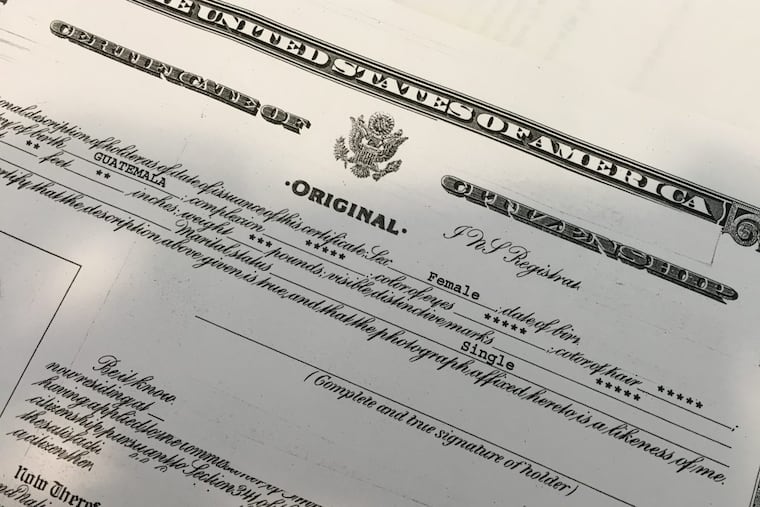For his daughter, a white dad calls out the racists among us
The best that I can do for my kid is rage on her behalf. White people hate it when other white people call them out.

A few years back, a kid hissed a racist remark at my daughter, who's adopted from Guatemala.
As white-bigot bile goes, it was not only ignorant, but inaccurate, since the slur is typically used to insult people from South Asia.
Still, my daughter intuited the venom in the bombast, and was puzzled and hurt.
I said that her mocha color was my favorite in the rainbow. I pointed to a local tanning salon where pale people pay good money to get as brown as she is.
But as I spoke, I realized that a Caucasian dad has a nonexistent store of racism experiences to impart to a Latina-Mayan daughter: No clerk has ever followed me as I shopped; no cop has ever stopped me for driving while Italian American.
I was thinking about all that as neo-Nazis tramped through Charlottesville, Va., recently. Afterward, President Trump endorsed some of the anti-Semitic white supremacists as "fine" people. Then he decried the recent civic roundups of stone horses with Civil War separatists on their backs, lamenting Americans' widening realization that it was mostly pigeons and very few others who'd found true value in ossified monuments to colossal blunder.
As a parent of a now-13-year-old, I must keep an eye out for misbehaving teenage boys, crazy internet predators, and mean girls. Do I have to worry about the president of the United States, too?
For her part, my daughter — who has heard Trump call Mexicans rapists and knows that he wants to ban throngs of immigrants — told me, "I'd feel bad if he was a kind president."
These days, as writer Martha Wood said in the parenting magazine Brain, Child, I realize I am unable to bestow upon my daughter the greatest cultural advantage that I possess: white privilege.
So, what can majority-culture papa tell his minority kid about prejudice?
I can say it's true I've never been enslaved, lynched, bombed in my church, shot for reaching for my license, or deported for the sin of picking grapes to live.
But when the tiki-torch-toting alt-right boys lament that the white man's got it hard, I can at least point to people who've had it harder.
And when the fellas complain that affirmative action or food stamps offer minorities unfair advantage, I can ask any whining white guy that if he'd a genie's wish, would he beg that his own kids turn black or brown so that they could enjoy all those government goodies?
I can say to my girl that what's awful about America isn't melanin. It's poverty. It's class-based misery. It's the boredom and terror of being without hope. It's 2 o'clock in the afternoon with no job to go to and not the least possible idea of how to get one.
So, it seems the best that I can do for my kid is rage on her behalf.
Also, I could tell her a story.
It was in my neighborhood in Brooklyn 28 years ago last Wednesday — after white people had chased and shot a black kid named Yusuf Hawkins who had traveled to the area to buy a car, and after black and brown people had held five days of protests.
As demonstrators boarded buses parked in a schoolyard to leave the neighborhood on the final day, the residents — people I grew up with, with whom I shared DNA and homeroom teachers — surrounded the schoolyard, then started passing around watermelons and singing the 1985 anthem to brotherhood, "We Are the World."
Not only were my paisans being racists, they were being cavalierly clever enough to make an ironic, in-your-face comment about their own racism.
A few blocks from where I grew up, I was utterly lost. When I wrote about what happened in a New York newspaper, I was called a traitor to my people. Telephone tough guys swore they'd kill me when I stepped outside my office.
I can tell my kid that white people hate it when other white people call them out.
But the thing is, white people have to say stuff like this.
Or we're not getting anywhere.